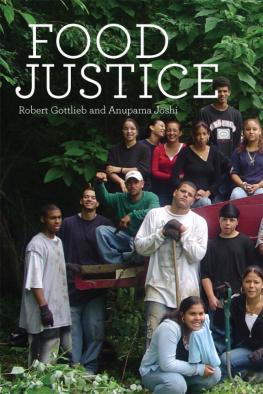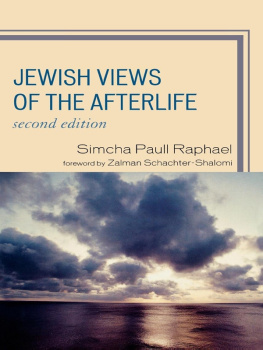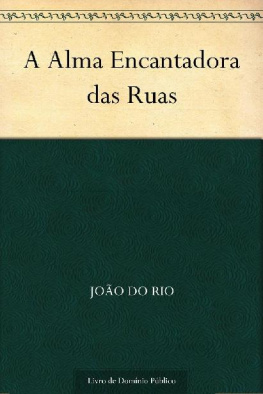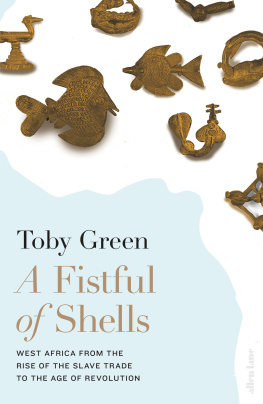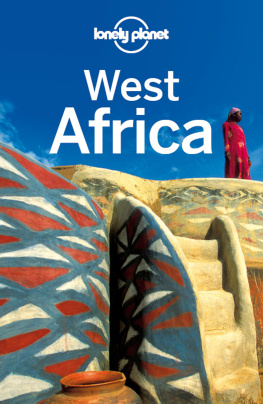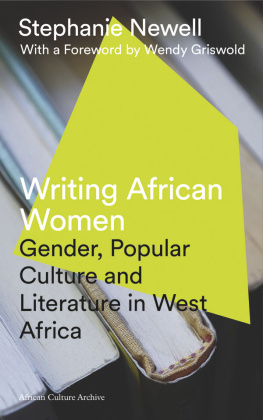Alma Gottlieb is professor of anthropology at the University of Illinois, Urbana-Champaign. She is author of Under the Kapok Tree: Identity and Difference in Beng Thought (1996) and coauthor of Parallel Worlds: An Anthropologist and a Writer Encounter Africa (1994, with Philip Graham), both published by the University of Chicago Press.
The University of Chicago Press, Chicago 60637
The University of Chicago Press, Ltd., London
2004 by Alma Gottlieb
All rights reserved. Published 2004
Printed in the United States of America
13 12 11 10 3 4
ISBN: 0-226-30501-5 (cloth)
ISBN: 0-226-30502-3 (paper)
ISBN 978-0-226-33063-1 (ebook)
Library of Congress Cataloging-in-Publication Data
Gottlieb, Alma.
The afterlife is where we come from : the culture of infancy in West Africa / Alma Gottlieb.
p. cm.
Includes bibliographical references and index.
ISBN 0-226-30501-5 (cloth : alk. paper)ISBN 0-226-30502-3 (pbk. : alk. paper)
1. Beng (African people)Social conditions. 2. Beng (African people)Psychology. 3. Beng (African people)Kinship. 4. InfantsCareCte dIvoire. 5. Infants-Cte dIvoireDevelopment. 6. Child rearingCte dIvoire. I. Title.
DT545.45.B45 G65 2004
306.874'089'9643dc21
2003011146

The paper used in this publication meets the minimum requirements of the American National Standard for Information SciencesPermanence of Paper for Printed Library Materials, ANSI 239.48-1992.
PREFACE
One night while I was writing this book, my daughter Hannah, then nine months old, roused herself around midnight and stayed awake for two hours. She wasnt hungry, she didnt need a new diaper, she was too sleepy to play, she wasnt sick, and she clearly wanted to go back to sleepyet every time she fell asleep in my husbands or my arms, she woke up a few minutes later, restless. Philip and I never did figure out what was in her mind or body that night that caused such anxiety in her exhausted parents. There are some mysteries that babies keep to themselves, forever leaving a question mark in those responsible for taking care of them. If attentive and loving parents are not always able to fathom the thoughts and desires of their own infants, with whom they often spend close to twenty-four hours a day, how can an outsider to the familylet alone an outsider to that familys societyexpect to understand the feelings, experiences, musings of those small, preverbal people?
The act of imagining the perspective of any other human beinginfant, child, or adult; Muslim, Catholic, or animist; female or male; gay or straight; queen or peasantis always an exercise in hubris. Yet many people assume that with the right training and the right set of questions, we can find a means to achieve at least an intellectual understanding of, and perhaps even some emotional empathy for, another mode of living, another mode of perceiving, another mode of feeling. In that sense, the study of other peoples lives is built not only on hubris but also on a fervent wishthe wish that such hubris is not entirely unjustified, that there will be some intellectual reward at the end of the scholarly day. At the same time, it must be acknowledged that at an existential level that wish is probably, at least in many cases, unrealizable.
In the early twenty-first century, the anthropological presumption of writing for an Other is under broad attack both within and beyond the discipline. Isnt the act of imagining for an Otherand a speechless Other at thateven more problematic? And yet it is just such an act of imagination that lies at the heart of cultural anthropology. Indeed, in an increasingly multi-cultural world with insistently heterogeneous populations banging up against one another, to refrain from trying to imagine the Others perspective as proficiently, as engagingly as one can is a reckless and fearful proposition. To live in a world in which we have given up on the dream of understanding the motivations for behaviors, feelings, and opinions of other human beings or groups of human beingswhether each of those persons or groups comes from a different religious tradition, socioeconomic class, or language group from our own... or is our neighbor or child or spousethis is a frightening thought. At an ideological level, such a world paves the way for war, with its assumption that the Other is epistemologically problematic and thus a legitimate candidate for annihilation.
Whatever else the underlying political and economic motivating factors, the major wars of the past centurythe two world wars; the U.S. war in Vietnam; the Gulf War; the civil wars in Ireland, Cambodia, Rwanda, Somalia, Eastern Europe, and the Sudan; and the ongoing war in the Middle Eastall have been premised on an intellectual assumption that another group of people lead lives of compromised legitimacy because of their Otherness. If anthropology has anything to offer the modern world, it is the insistence that the effort to understand the Otherany Otheris one worth making, even if that understanding can never be achieved with a level of completeness.
Like most cultural anthropologists, then, I affirm the fundamental humanness of my species-mates, and I crave an understanding of the ways of those humans that appear to be most different from my own. But how far can that argument, that craving, be pushed? I am the first to acknowledge that it was an act of presumption that brought me back to Bengland in the summer of 1993 to focus exclusively on a subject I had previously studied only intermittentlythe lives of infants. That act of presumption suggested a wish and was motivated by a question; and of course that question led to many more, which led to many more.
From the time I began that project until I completed this manuscript, my major aim has been to challenge the assumption of an Everybaby that somehow exists outside of culture. Such an assumption implicitly underlies, for example, the two thousand or so parenting manuals now sold in bookstores and the myriad parenting advice columns dotting newspapers and magazines, so popular in many Western countries. In challenging the basic operating model behind the fact of such widely consumed folk models passing as neutral expertise, I hope to present an alternate model of a baby that is deeply constructed by culture.
Anthropologists have long promoted the notion that daily practices assumed by the members of one society to be natural may be surprisingly absent elsewhere, and that such practices, seemingly unnatural in the views of outsiders, make sense when viewed in the context of a variety of cultural factors whose meanings can be discerned only after systematic analysis of the local system of cultural logic. Some time ago, Clifford Geertz (1983) articulated this argument in relation to the notion of common sense, arguing that what is accepted as common sense is anything but common. Instead, common sense is a deeply culturally constructed artifice that is so convincingly structured as to appear transparent, self-evident. At one level, this book takes up that line of thinking, seeking to apply Geertzs insight to the seemingly commonsensical realm of infant care. Indeed, I interrogate a domain of human practice that perhaps more than any other exists in the realm of the routinely taken for granted even by anthropologists, accepted as somehow having a natural foundation beyond the reaches of culture. Yet as we will see in the chapters that follow, the everyday decisions that Beng mothers and other caretakers make concerning infants are anything but common when viewed from an outsiders perspective.

 The paper used in this publication meets the minimum requirements of the American National Standard for Information SciencesPermanence of Paper for Printed Library Materials, ANSI 239.48-1992.
The paper used in this publication meets the minimum requirements of the American National Standard for Information SciencesPermanence of Paper for Printed Library Materials, ANSI 239.48-1992.
